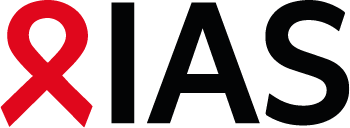Share Abstract
Exclusive breastfeeding among HIV-positive mothers receiving lifelong ART from PMTCT clinics in Kigali, Rwanda
Abstract Content:
Background: In low-resource countries with unsafe replacement feeding options, HIV-infected women are advised to exclusively breastfeed (EBF) for the first six months while on a regimen of antiretroviral therapy (ART). The Kabeho (Kigali Antiretroviral and Breastfeeding Assessment for the Elimination of HIV) Study is an observational prospective study of 24 month HIV-free survival of infants born to HIV-positive women attending antenatal clinics participating in the Rwanda National Prevention of Mother-To-Child Transmission (PMTCT) program, implementing lifelong ART, (''Option B+''). These analyses evaluated individual and facility factors associated with duration of EBF to 6 months postpartum.
Methods: HIV-positive women from 14 health facilities in Kigali were followed at monthly clinic visits. Self-reported infant feeding practices were recorded at each visit. We estimated longitudinal logistic regression models of EBF including all observations up to 6.5 months of age (n=3295 observations, 590 infants surviving>2 days). We considered individual and facility-level factors.
Results: Overall, 97.6% of mothers initiated breastfeeding; however, EBF declined rapidly after first 3 months postpartum. By 6.5 months, less than half (43%) of infants were exclusively breastfed (Figure 1). Likelihood of EBF was significantly lower among women with higher education, living in households with higher socioeconomic status, and with a twin or cesarean delivery. A higher facility factor score (more staff training related to infant feeding) and provision of infant feeding counseling were strongly associated higher likelihood of EBF across all ages.
Conclusions: Results show that adherence to 6 months of EBF rapidly declined after 3 months postpartum in Kabeho mothers. Given the strong association of facility factors with EBF, Option B+ programs should focus on improving infant feeding counseling at facilities by staff well-trained in comprehensive infant feeding and support.
![[pic_01] Image](http://www.aids2016-abstracts.org/pictures/p_792_1000031.jpg)
[Image]
Methods: HIV-positive women from 14 health facilities in Kigali were followed at monthly clinic visits. Self-reported infant feeding practices were recorded at each visit. We estimated longitudinal logistic regression models of EBF including all observations up to 6.5 months of age (n=3295 observations, 590 infants surviving>2 days). We considered individual and facility-level factors.
Results: Overall, 97.6% of mothers initiated breastfeeding; however, EBF declined rapidly after first 3 months postpartum. By 6.5 months, less than half (43%) of infants were exclusively breastfed (Figure 1). Likelihood of EBF was significantly lower among women with higher education, living in households with higher socioeconomic status, and with a twin or cesarean delivery. A higher facility factor score (more staff training related to infant feeding) and provision of infant feeding counseling were strongly associated higher likelihood of EBF across all ages.
Conclusions: Results show that adherence to 6 months of EBF rapidly declined after 3 months postpartum in Kabeho mothers. Given the strong association of facility factors with EBF, Option B+ programs should focus on improving infant feeding counseling at facilities by staff well-trained in comprehensive infant feeding and support.
![[pic_01] Image](http://www.aids2016-abstracts.org/pictures/p_792_1000031.jpg)
[Image]
